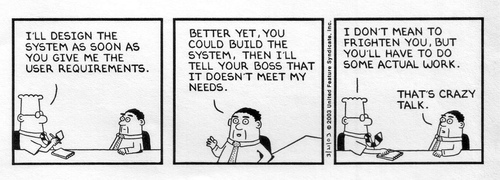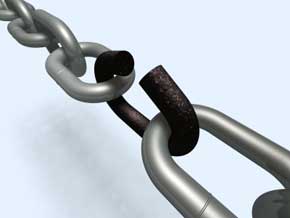It is the end of the quarter. And it is feedback season again!
Feedback is a word many people dread and it makes them uncomfortable, while for others it is a tool to reflect on and improve performance. Having been on both ends of the feedback spectrum over my career, I want to share today what I think feedback is, and how it can benefit people as well as organisations.
What is feedback?
Do you think feedback is an operational necessity which your organisation requires you to do? Do you think feedback is something “extra” you have to do in addition to your work? In the early days of my career I saw feedback as a distraction which keeps me away from “real” work. I wanted to get done with the feedback cycles as soon as possible as it would make me anxious and nervous. After all, nobody ever told me the purpose of feedback, how to do it well and how to make it a tool in my development.
It was only through my own mistakes receiving and giving feedback (and a few trainings) that I realised that feedback is work itself and not something external to it. Feedback is as much a part of my (and everyone else’s) work duties as any other task I consider essential. Over time I came to see feedback as a tool to improve not just my own performance, but also of the people around me, and of my team/organisation as a whole.
Feedback can happen in a ‘day to day’ manner like any other task. It can be a simple comment on some work which was just completed, like :-
- You handled that really well. Thank you for thinking about that specific case.
- I loved how you presented your ideas in the meeting we just had.
OR, Feedback can be a structured conversation with your manager or employee. For example :-
- I see you doing really well in … , …
- I would like to see you develop skills like … , etc
“Feedback is the breakfast of champions.”
– Ken Blanchard
The Benefits of Feedback You Never Knew
The most important and obvious benefit of feedback is that it shines a light on and reveal our blind spots. We all need feedback to reflect, learn and grow. It helps us become aware of our strengths and weaknesses, and identify any actions required to address them and improve performance. Timely feedback is essential to creating a loop where we are constantly reflecting upon what we did in the past and how can we do better in the future.
But apart from assisting in our own personal development, I believe feedback can be an important tool which can help our team / company in other ways. Some of these are :-
1. Better Relationships
A regular cycle of feedback, not just with our managers but also with our peers, helps us build better relationships at work. It helps us get comfortable with each other and develop friendships with our colleagues. Having strong relationships at work not just impacts business results, but also results in more smiles and satisfaction from what we do. Giving and receiving feedback builds trust and help create a safe environment where people can be themselves without any pretensions.
2. Clear Expectations
Having regular feedback conversations with people help clear expectations about what we expect from each other. It brings out our implicit expectations in the open and iron out any disagreements. Doing this right avoids any future misunderstanding and conflicts, and even if they arise, are much easier to handle and resolve.
3. Positive Reinforcement
Giving appreciation of a task well done serves as a wonderful positive reinforcement for the kind of behaviours you want to nurture in your team and your organisation. Giving people a pat on their back or an informal “whoop” or “cheers” can do wonders to their confidence, and sets an example for everyone else.
4. Culture of Feedback
If people are comfortable giving and receiving feedback in a company, and if it becomes a part of people / teams working together, then you have what is called a “culture of feedback”. This can be a tremendous asset for any organisation. This culture lets your employees know that you care about them as people, and not just the business results they produce. The culture of feedback creates an environment which enables every team to take ownership and pride in going after and achieving their business goals, while also taking care of their personal well-being and growth.
To sum it up, the benefits of continuous feedback far outweigh the cost of having a culture of feedback and the little awkwardness everyone feels while giving and sharing feedback, which can be easily mitigated with proper training and guidance. Having a culture of open communication and regular feedback empowers people to come to work and make a difference – to their own growth as well as to the company’s purpose.


